
PR
On August 13th, the Bon Festival, a welcoming fire is built to welcome the spirits of ancestors, and on the 16th, a bonfire is built to send them off. In Kyoto, the Gozan-no-Okuribi (Bonfires at Gozan) is well known. This year, the scale of the festival was scaled down due to the outbreak of the new corona virus, but it is still a very popular event.Gozan-no-Okuribi is an indispensable event for KyotoitesIt is.
by the way,In Kyoto, it is not only the bonfires to welcome and send off the spirits of ancestors. There are also "welcoming bells" and "sending bells.In early August, people visit Rikudo-Jinnoji Temple in Higashiyama to perform the Rikudo mairi, welcoming the spirits of their ancestors. In the precincts of the temple, there is a "welcoming bell" whose tone is said to reach the underworld, and a long line of bell ringers forms.
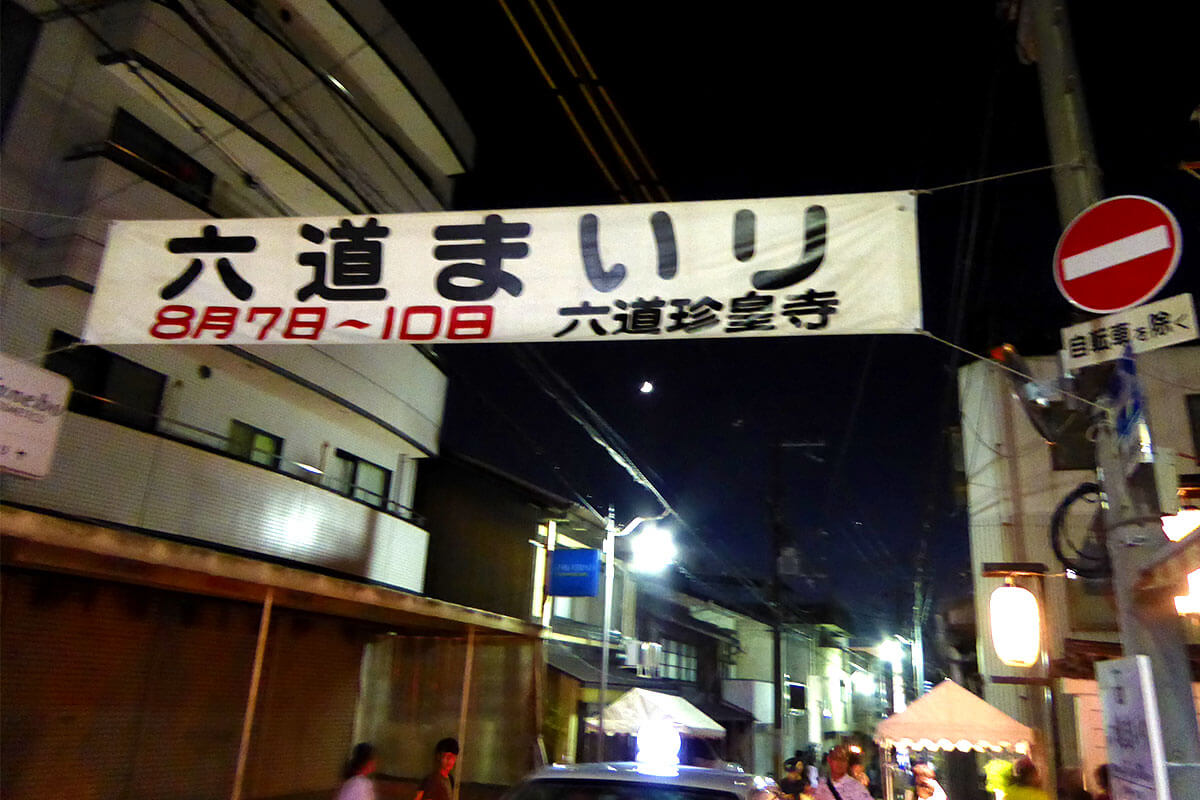
pilgrimage of the Six Forms of Avalokitesvara (one for each of the six realms)
andWhen Obon is over, the spirits return to the underworld. The bell that is rung at that time is the "Sokurikane" (bell to send off the spirits).It is. The bell is erected in the Teramachi Specialty Store Association Shopping Street in Teramachi Sanjo.Yata-dera Temple (Yata Jizoson)The temple is located in It is said that by ringing the bell of this temple, spirits can return to the underworld without hesitation.
Yada-dera Temple was built in the early Heian period (794-1185) as a branch temple of Yada-dera Temple in Yamato Province (present Nara Prefecture) in Gojo Bomon, and was later moved to this location. The temple stands blending in with the busy arcaded shopping street and is one of the typical sights of Kyoto.
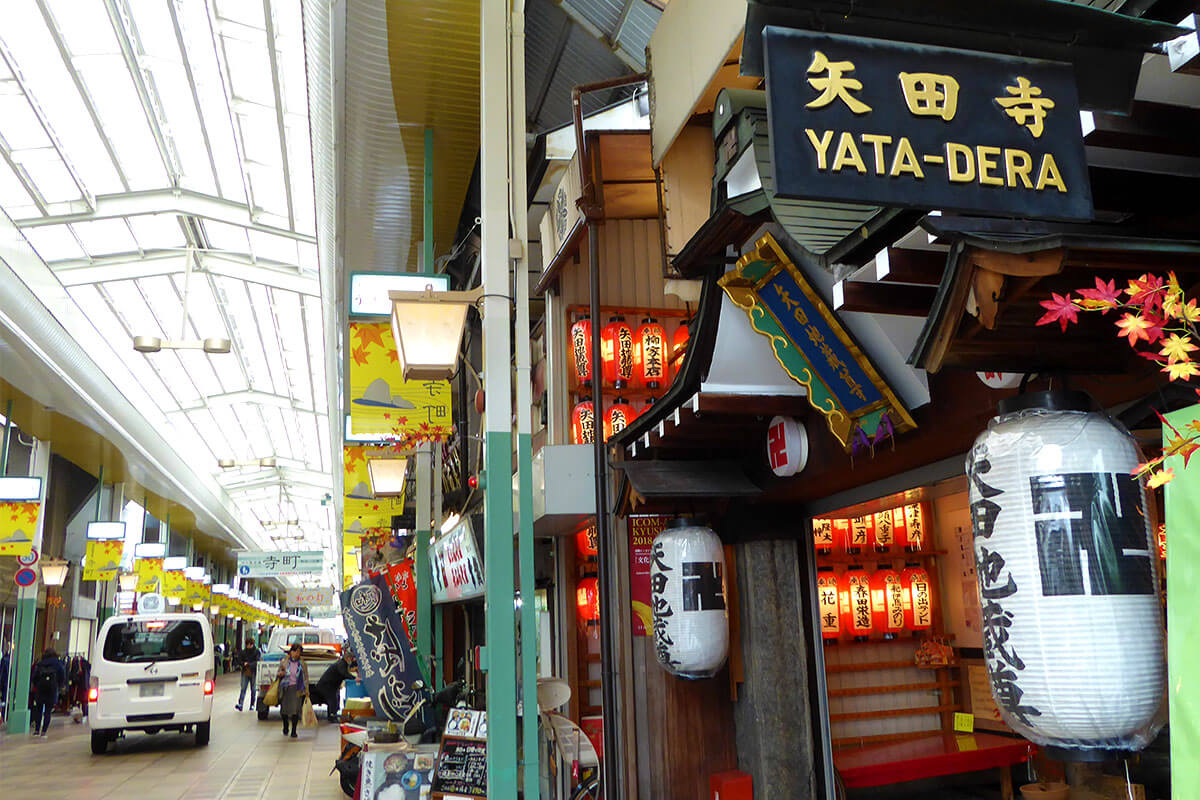
Yada Temple blends into the arcade area
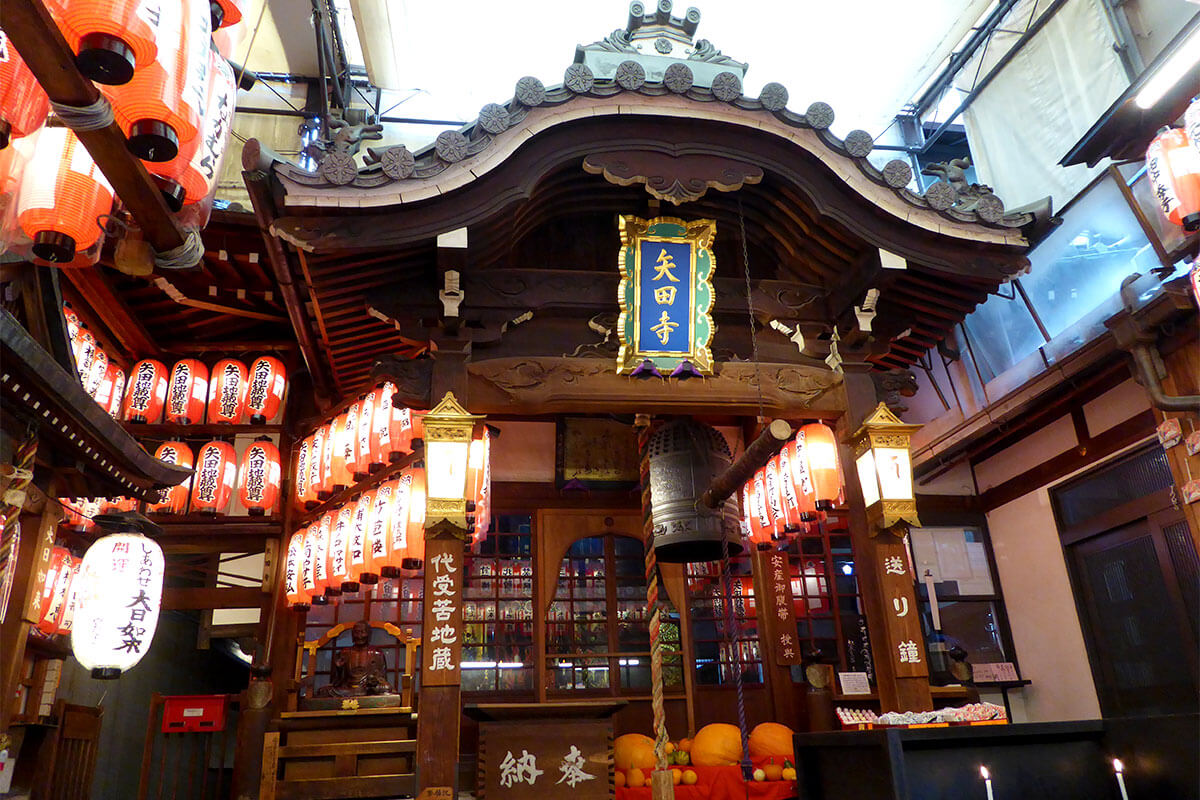
Yada Temple and the bell
The temple's principal object of worship, theJizoson (Yata Jizo)" has a mysterious anecdoteThe temple was founded by the Buddhist priest Mankei (Man'mei). It is said that the founder of the temple, Mankei (Man'yomi) Shonin, was so impressed by the sight of Jizo Bodhisattva, whom he encountered in the underworld, saving people suffering in hell, that he returned to this world and had a Buddhist priest carve the statue. The statue is also called "Jizo receiving suffering for generations," and has been worshipped as a Jizo that saves the departed in hell. Mankei (Man'mei) Shonin is also closely associated with Ono Takamura, a bureaucrat in the early Heian period and the owner of a legend that he entered and left the underworld at night from a well in Rikudo-Jinnoji Temple. One day, Enma asked Takamura if there was anyone who would be a good person to receive the Bodhisattva Precepts (precepts for training to become a bodhisattva). Takamura introduced him to Mankei (Man'mei), a priest of Yada Temple. Takamura takes the guru to the underworld through a well. The shonin was allowed to visit hell, where he encountered the Jizo-son mentioned above.
Incidentally, as a token of gratitude to King Yama for bestowing the Bodhisattva precepts, the shonin was given a handbasket filled with rice. The rice did not decrease in quantity, and the people around him wondered why. The shonin must have distributed the rice to the poor, and people came to call him "Manmai Shonin" (the "full rice shonin"). This story appears in the "Yada Jizo Engi Emaki," but instead of Enma receiving the Bodhisattva precepts, Ono Takamura receives the precepts.
After a long rainy season, Kyoto has been experiencing a series of extremely hot days. While the Corona disaster tends to make people feel depressed, we managed to celebrate the day of the Spiritual Transportation Day. This year, I would like to spend the day ringing the bell at Yada-ji Temple to send our ancestors safely to the underworld and pray for daily peace of mind and the end of the new corona disaster.
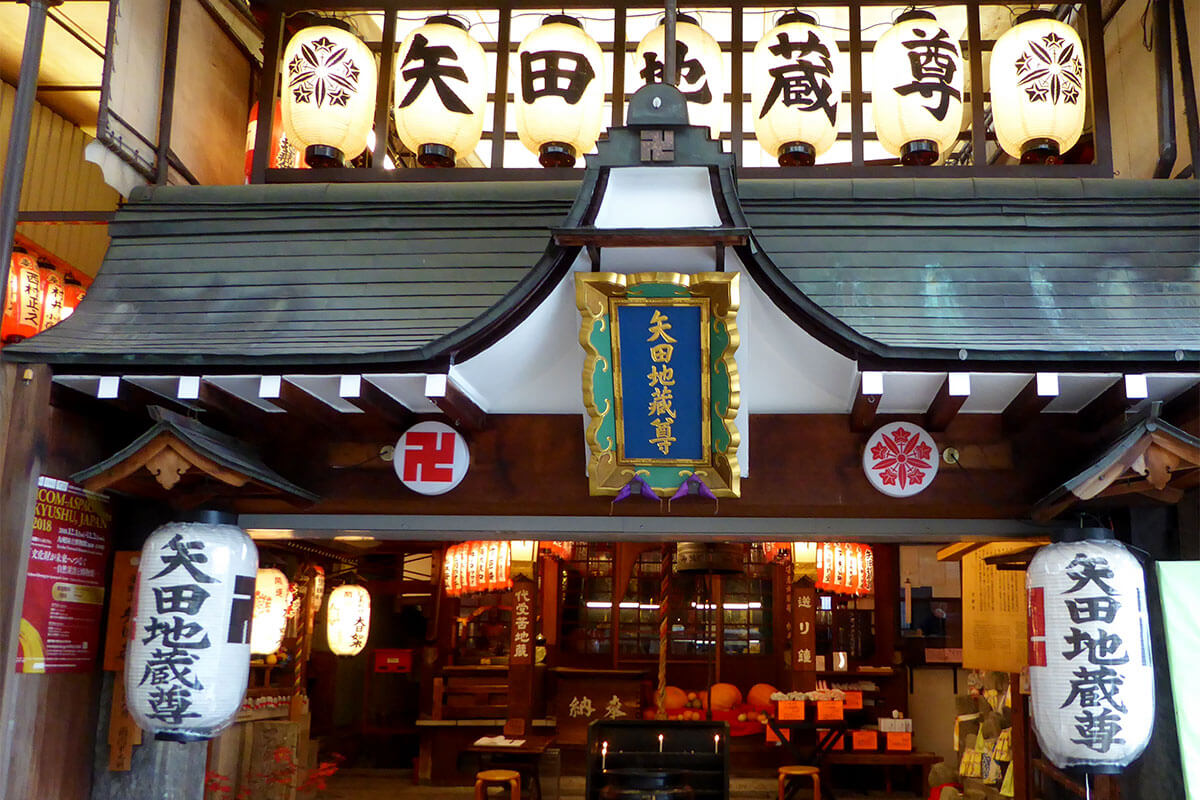
Yata Jizo Son
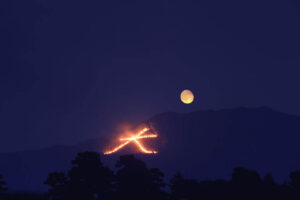
August 16, 8:00 p.m., Obon event in Kyoto
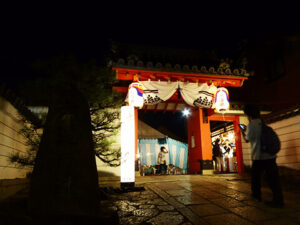
Rokudo no Tsuji, the entrance to Higashiyama and Toribeno
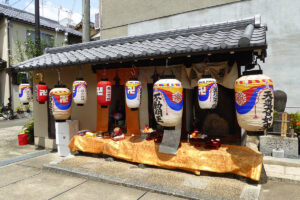
An event originating from Kyoto that is essential in late summer
Tradition that exists everywhere in the city of Kyoto. It is not just a picture, it is secretly alive in this modern age and continues to coexist with people. The two of Office TO, who previously wrote a series of articles "Kyoto's Demon World Exploration" in the monthly magazine Leaf, explore the mysterious "different" world of Kyoto, which was created over 1200 years. I will unravel the story while actually visiting the place. .
 News
News Feature article
Feature article Featured event
Featured event